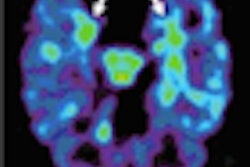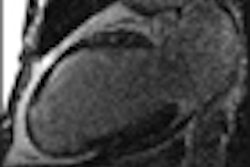Nuclear medicine professional society SNM has pointed out what it feels are several shortcomings in a report issued this week by the U.S. National Academy of Sciences (NAS) on the feasibility of developing a U.S. supply for medical isotopes.
The U.S. currently does not have a domestic supply for most medical isotopes and must import radiotracers from international sources. The situation is particularly acute for molybdenum-99 (Mo-99), the precursor to technetium-99m, commonly used in nuclear cardiology studies. Supplies of Mo-99 have routinely been interrupted in recent years, forcing nuclear medicine practitioners to scramble for alternatives.
The NAS report was mandated by Congress under the Energy Policy Act of 2005 to determine the feasibility of producing medical isotopes without high-enriched uranium (HEU), currently the most common method of production. Converting to a process using low-enriched uranium (LEU) in theory could remove the uncertainty involved in the availability of HEU for Mo-99 production.
But the report found that while it's technically feasible to convert existing HEU reactors to LEU, there are no incentives to do so, and such a conversion still might not address ongoing medical isotope shortages.
In a statement issued on January 15, SNM of Reston, VA, said that the NAS report did not address concerns about isotope production that could significantly affect patients requiring diagnostic procedures.
"We are pleased by the prudent recommendations of the report and long-term view toward the potential conversion from HEU," said Robert Atcher, Ph.D., president of SNM and chair of SNM's isotope availability taskforce. "However, the information used for developing the economic impact is suspect and the need for a reliable domestic isotope supply remains critical and is not addressed by this report, and continues to put patients at risk."
SNM said that while the report addresses security concerns related to isotope production using HEU, there are also regulatory, financial, environmental, and patient issues related to conversion to LEU reactors that must be addressed.
Related Reading
Report: Use of low-enriched uranium in medical isotopes is feasible, January 15, 2009
NRCG reactor will be down longer, December 22, 2008
Belgium to restart medical isotope production, November 5, 2008
Dutch reactor won't restart until February 2009, October 15, 2008
Dutch reactor opening delayed another month, September 19, 2008
Copyright © 2009 AuntMinnie.com




















